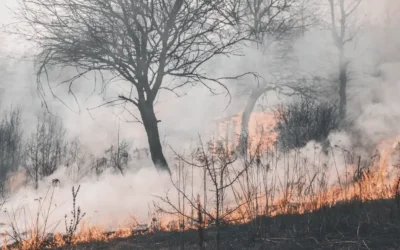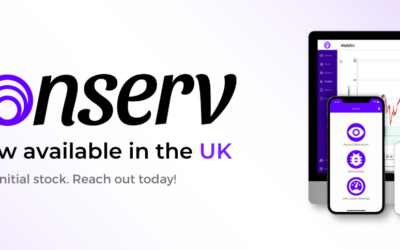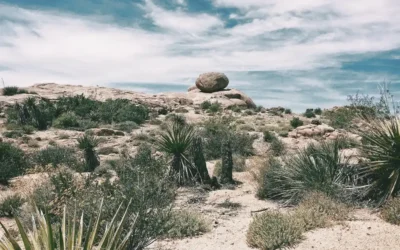Preven(ta)tive conservation, sometimes referred to as preven(ta)tive care or just collections care, is the practice of minimizing or mitigating damage and deterioration to cultural heritage objects and collections by acting on the surrounding environment of a collection rather than intervening directly on an object. It involves applying scientific knowledge, ethical principles, and practical skills to ensure the long-term preservation and accessibility of our shared heritage.
Preventive conservation is a core competency for collections care professionals, such as conservators, curators, registrars, collection managers, and technicians. However, it is also a dynamic and evolving field that requires continuous learning and updating of skills and knowledge.
Whether you trained as a conservator or you work in a library or archive, perhaps you didn’t get as much time as you would have liked to take preventive conservation courses. Active environmental monitoring and preventive care that leads to actionable results is the first line of defense for collections care. But where do you start? You may know the basics with the ten agents of deterioration, but do you feel confident enough to address them in a practical way?
Although it is much easier to find written resources and webinar recordings than actual preventive conservation courses, luckily for all of us, there are still a few which are available online and that are geared towards helping you increase your confidence and practical knowledge. Without further ado, here are some preventive conservation courses you can take today.
Preservation Housekeeping for Heritage Sites and Small Museums by CCI
Developed by the Canadian Conservation Institute (CCI), the Canadian Heritage Information Network (CHIN), and hosted by Athabasca University, this free course is perfect for an absolute beginner. It is only 1.5 hours long but touches on a variety of basic topics related to preservation such as cleaning, the agents of deterioration, condition reporting, housekeeping plans, walkarounds, and even health and safety. It describes itself as ideal for employees and volunteers in small museums or historic properties as well as being well-suited to train or onboard new staff and volunteers.
Introduction to the Agents of Deterioration by Museum Study LLC
This course by Museum Study LLC covers the agents of deterioration as developed by the CCI. Unlike many of the other online courses offered by Museum Study LLC (which are also recommended), this course is free and includes an electronic badge of completion which you can later display on your Linkedin profile. Other courses offered include risk assessment and collections management topics, which may also be applicable to your preventive conservation strategies.
C2C care various courses by AIC
More than a single course, this is a web page hosted by the American Institute for Conservation – Foundation for Advancement in Conservation (FAIC). If you look into the Self-study section, you will find various asynchronous courses which you can do in your own time. Some are free, while others are paid – these details are available in each of the course descriptions – and some come with special discounts for printed books related to the topic. The length of the courses is variable with some having only one component and others having up to 30! If you would prefer to try a free webinar instead of a preventive conservation course, you can also look through their archive of over 125 recordings or check the events calendar to sign up for an upcoming live event.
Various courses by ICCROM
We said in the title preventive conservation courses you can take today. This is not technically accurate for this particular resource by the International Centre for the Study of the Preservation and Restoration of Cultural Property (ICCROM). However, finding preventive conservation courses that can be easily taken online at any time and wherever you may be is more challenging than one would think, so it’s important to keep track of as many places as possible. ICCROM is very much an international organization, and as such, its courses may be found globally and in various languages, with emphasis put on areas at higher risk or with fewer resources. That said, it is still possible to find online courses for preventive conservation topics. You should be aware that many of the courses by ICCROM require an application, although they will also come with certificates of completion – and the added bonus that you will be networking internationally with your course mates. ICCROM courses are not available all the time, so this is one of those resources which you will have to check periodically to make sure that you don’t miss any upcoming opportunities – then again you can always sign up for a newsletter so you find out in time!
The most interesting project related to preventive collections care originally developed by ICCROM (and supported by UNESCO) is the RE-ORG method. The RE-ORG method is a step-by-step approach to help medium and smaller institutions to organize their collection storage spaces so they can regain access to areas that have gotten out of hand due to small spaces, large collections and lack of support from higher management. While there is no course available online today, C2C Care definitely had one back in 2019. This course was recorded and is available to watch on-demand together with the handouts, quizzes, and assignments so that you can use it all for self-study.
Integrated Pest Management courses by IAP
Courses by International Academic Projects are not on-demand self-study classes but live courses with well-known instructors in the field. They are not free, but they are very good quality. Be aware that IAP is based in the UK so prices for their courses will be in Great British Pounds (GBP). While they do not require application like with the ICCROM courses mentioned above, they are scheduled for specific times of the year, so you do need to be aware of them coming up and sign up in time, so signing up for their newsletter is a good idea if this is something that interests you. There are two specific courses coming up in 2024 for IPM and pest identification in collections, so if you feel you really need to improve your understanding of this particular agent of deterioration, these courses are an excellent place to start.
Caring for Museum Collections by University of Victoria (Canada)
This particular course is different from the ones presented above as it is a university course as part of a continuing studies program. As such, it will cost tuition (CAD$768.38 + fees as of December 2023) and involves an engaged 10-14 hours of coursework per week for 14 weeks. It is possible to take it for credit or not. Be sure to check out the other offerings by the university for other topics in museum studies if continuing professional education through the asynchronous online format works well for you.
Bonus webinars and events by Conserv
At Conserv, we are really interested in active environmental monitoring rather than reactive environmental monitoring data review, so even though we don’t currently have many specific preventive conservation courses, we can still offer you recordings of past webinars on integrated pest management and water emergencies. We also have a free course on Conserv Cloud, our browser-based environmental monitoring platform which you can use for free with your own data loggers so you can start getting familiar with environmental monitoring and its related software.
Conclusions
Wherever you work in heritage, a working knowledge of preventive care will be a valuable tool to inform your decision making. Familiarity with the agents of deterioration and how they interact with each other and with your collections will help you decide on a variety of aspects that may go from building infrastructure, individual storage practices, ideal collection display, active environmental monitoring, and even lighting engineering. We hope the preventive conservation courses above help you in your educational and professional development journey! And don’t forget you can always reach out to your colleagues in the Conserv Community for more information and recommendations.
If you have any questions about environmental monitoring, integrated pest management, or just want to talk about preventative conservation, please reach out to us! Don’t forget to check out our blog or join our community of collections care professionals where you can discuss hot topics, connect with your peers or even take a course to get familiar with the Conserv platform.





